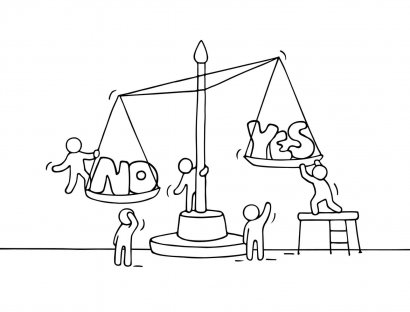 The concept of common sense is one that is used to designate that intelligence that the human being has developed and that allows him to handle himself sensibly in different situations of his life. Common sense is normally understood as what is appropriate to do, think or say at certain times, although this does not necessarily imply that said action, thought or phrase is correct. For example, it is to act with common sense when you tell someone who is suffering that the situation will improve even if you do not really know what might happen in the future. Common sense acts in this case as a sensible and appropriate way to react in the face of tragedy or pain.
The concept of common sense is one that is used to designate that intelligence that the human being has developed and that allows him to handle himself sensibly in different situations of his life. Common sense is normally understood as what is appropriate to do, think or say at certain times, although this does not necessarily imply that said action, thought or phrase is correct. For example, it is to act with common sense when you tell someone who is suffering that the situation will improve even if you do not really know what might happen in the future. Common sense acts in this case as a sensible and appropriate way to react in the face of tragedy or pain.
The notion of common sense starts from the idea that it is shared by everyone in a society or community, hence it is considered "common". This means that it does not depend on the subjectivity of a person or individual, but is based on traditions, accepted behaviors and ways of acting that in that society are considered appropriate for each situation. In many cases, common sense is the same for some issues in different parts of the world, for example when it is understood that it is common sense to drive without being under the influence of alcohol. This is the case in any corner of the planet, even if there are individuals who do not respect this rule.
Common sense could be described as a rational and sensible way of acting. This is so because common sense does not always imply doing the right thing, so it cannot be directly related to a question of morals or ethics but to what is best for each particular situation. Common sense is supposed to be one that makes us behave trying to make every situation the best possible for ourselves and for others. It is common to hear common sense talk on the street, in private conversations, etc. when judging a certain situation and the way in which a person acted or responded to it, if he used common sense or if he did not do something appropriate according to his circumstance.









